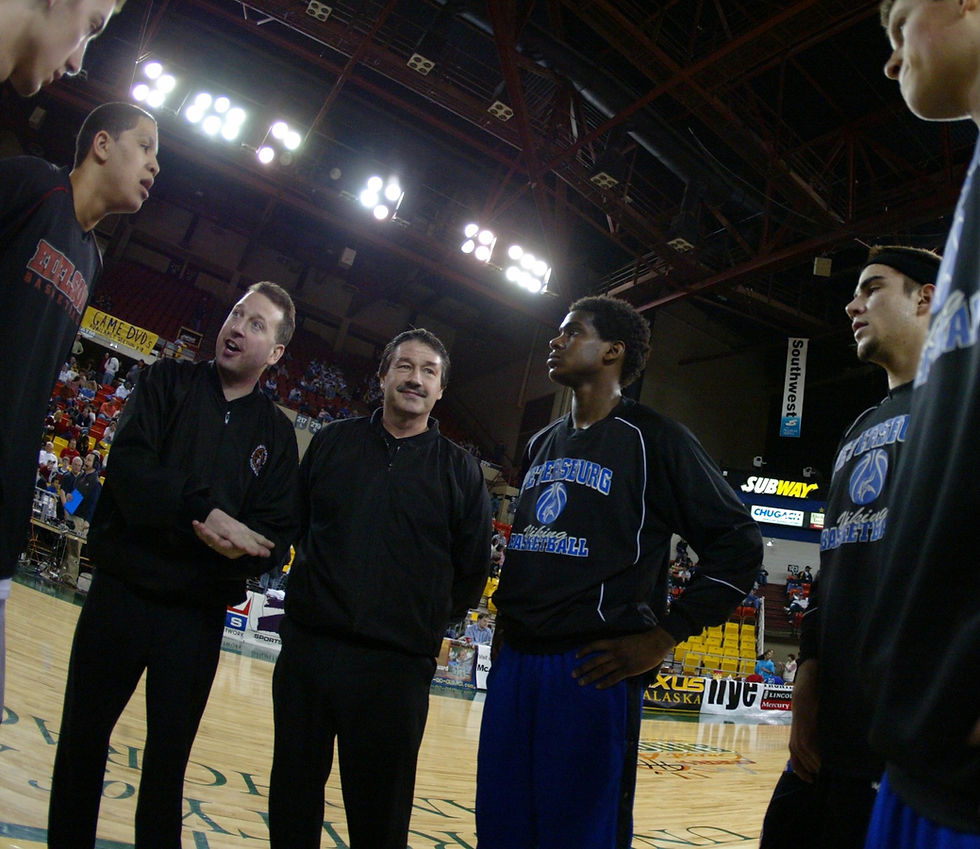People looking for their next meal express gratitude for Southeast Alaska Food Bank, worry about future as SNAP assistance disruption looms
- Jasz Garrett

- Oct 30, 2025
- 6 min read
Updated: Nov 2, 2025
“This food bank is the reason I’m still here.”

By Jasz Garrett
Juneau Independent
This story has been updated to note two judges ruled Friday that the federal government must tap emergency funds to pay at least partial SNAP benefits to recipients in November.
Veterans, furloughed employees and other Juneau residents struggling to make ends meet lined up at the Southeast Alaska Food Bank's public pantry on Thursday afternoon.
Roughly 42 million Americans may not receive their Supplemental Nutrition Assistance Program (SNAP) benefits on Saturday due to the federal government shutdown. The Agriculture Department reversed its promise to use roughly $5 billion in contingency funds to prevent interruptions to food stamp benefits and President Donald Trump has said he will not tap other fund sources.
Two judges ruled Friday the federal government must tap emergency funds to provide at least partial benefits. However, the payouts supposed to go out Nov. 1 will be delayed because it will take the Agriculture Department some time to process them in coordination with states. It was not immediately known Friday morning if the Trump administration will appeal the rulings.
More than 66,000 Alaskans rely on SNAP, a federal program that provides financial assistance to low-income individuals to purchase food. Benefits are provided on a debit-like card that is credited on the first of each month.
Douglas Stiner said he knew he had to ride his bike to the food bank this week and load it up, or soon, he wouldn’t be able to eat. The pantry, located at 10020 Crazy Horse Drive, is open only on Thursdays from 3 to 5:30 p.m., with the rest of the week spent preparing and coordinating with SEAFB partners across Southeast Alaska.
“I’ll run out of food on Saturday and then I’d have to wait until next Thursday,” Stiner said. “I think it’s a big mess. They need to open back the country up like it should be. Going to make it rough for a lot of people.”
He said he was coming on Thursday to “get what I can and make it last.”

Stiner said the food bank makes sure everybody gets what they need and does a good job. SEAFB has four employees and between 25 and 30 weekly volunteers. There is a roster of another 30 to 40 volunteers who are on call. A dozen volunteers helped prepare bags of food inside the building on Thursday, distributing them at the garage located at the end of the building.
The food bank’s website states approximately 2,500 people in Juneau rely on SNAP and “for every meal that a food bank provides, SNAP provides nine.”
According to SEAFB Executive Director Dan Parks, the pantry serves approximately 140 Juneau households on average each week, which equates to between 400 and 500 people. Compared to last fall, about 50 more households have come through. He said the need has been steadily increasing this year. Any member of the public is welcome to come on Thursdays. Inside the pantry’s building, a dozen volunteers worked together to prepare bags of food.
Outside, people were greeted by a volunteer who asked them questions to determine their needs. No demographic or personally identifiable information is collected. Parks said the answers determine how much food each household should receive.
Throughout the week, SEAFB prepares for the pantry and sets aside food they think they will have enough of “to give everybody that shows up a fair share.” Everyone who comes through receives their pre-packed order at the end of the line outside, where they can then choose from “bonus” groceries to take home.

Parks said SEAFB has bonus items available every week because it operates a grocery rescue program, which accounts for approximately 90% of its food supply. A food bank employee stops by each grocery store and distributor every morning to pick up any food they are discarding.
“A lot of the bonus items come from that,” he said. “It’s stuff we get from the stores that’s not great, but we can still use it for a couple of days. They can’t sell it, but we don’t want them to just throw it away. We try to get it into the hands of someone kind of rapidly.”
Parks said SEAFB is “not immediately” worried about meeting an increased demand, but Syrus Reed said the concern was on her mind as she waited.
She said she was personally ineligible for SNAP due to her income, so she is not affected by cuts. Reed has been coming to the food bank for four years and said a large reason she still does is because Juneau is an expensive place to live — plus, she grabs food for a coworker who is a single mother.
“It’s definitely a difficult time for folks,” Reed said. “I do know people who are affected by it and I hope the food bank is able to get enough support to be able to support the community, because I know it’s difficult as is with the folks who have need for these services, but with the increased need, it’s just going to get harder, and now that distribution only happens once a week, it’s a really narrow window. That’s why I feel grateful that I'm able to come because my friend does work and can’t make that window.”
Parks said most of the food in their newly built warehouse, located beside their public pantry, is bought by SEAFB, although some has been donated. Community donations help fund the purchase of food. He said while many food banks across the country rely on federal grants, SEAFB does not. However, it does receive grants through the state. He said no grants are currently frozen for SEAFB, but there has also not been a new allocation for this year. Parks said he expected to find out the future of grant funding when the legislative session resumes in January.
The Anchorage Daily News reported Thursday the Alaska Legislature is considering a special legislative session “if the shutdown and SNAP funding freeze continue into next week.” A spokesperson for Republican Gov. Mike Dunleavy told the ADN “the Dunleavy administration has looked for available funds that can be donated to food banks, but no funds have been identified.”
Sen. Bill Wielechowski, D-Anchorage, wrote a letter on Wednesday to Dunleavy and Attorney General-Designee Cox with a request for Alaska to join a lawsuit by 25 Democratic-led states, one of the two lawsuits for which rulings were issued Friday.
Parks said his big hope is ongoing cuts to SNAP and social services programs will activate people who haven’t been activated before, or if they are suddenly finding themselves on the margins, they will know something needs to be done.
“We can turn some of the beneficiaries of social services into advocates for the value of social services and the necessity for them, frankly,” he said. “Just getting people to raise their voice and let their elected officials know that this is not serving them and these cuts are not in the interest of the American people.”
He said that right now, SEAFB is focused on informing those who have been newly activated due to current circumstances about seeking advocates for food security in their community. A list of community resources is provided by the Alaska Department of Labor’s Juneau Job Center.
Subsequent to the list’s publication on Oct. 15, Resurrection Lutheran Church has invited federal workers and SNAP recipients to dine in and take out meals at its community cafeteria, which serves approximately 500 meals each week. It is open on Tuesdays from 12 p.m. to 4:30 p.m. and Saturdays from 12 p.m. to 1:30 p.m.
Free lunch gatherings from noon to 1:30 p.m. are also being offered twice a week, on Mondays and Thursdays, at the International Brotherhood of Electrical Workers Local 1547 hall for furloughed federal employees.
Parks said SEAFB’s mission is to serve as a bridge between organizations trying to help and the people who need it by acting as a centralized distribution hub in Southeast Alaska.
“What’s really important is that they know that we’re here and that we’re going to be here,” he said. “We might not have the resources to last forever, but a lot of folks don’t necessarily know that we’re here working in the region...It’s not just in Juneau. And if they need some help, they can always reach out to us.”
About 20 people were in line when the food bank began taking “orders” at 3 p.m. Thursday. Before filling out his ticket, Sebastian Grant said, “It’s gonna hit hard everywhere.” He grew up with a family on food stamps and said they’re still on assistance back home in Washington.
“I don’t know how my mom, my sisters are gonna get by,” he said. “Thank God for food banks. When I got here in Juneau, I showed up with no money, just backpack on my back, I was gonna restart my life up here. There’s no services up here. Food stamps don’t travel with you. This food bank is the reason I’m still here.”
• Contact Jasz Garrett at jasz@juneauindependent.com or (907) 723-9356.










